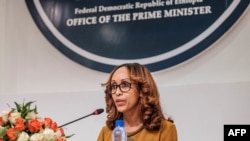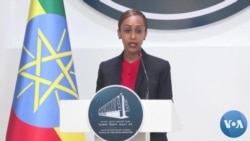Prime Minister Abiy Ahmed's government and the Tigray People's Liberation Front (TPLF) have in recent weeks raised the prospect of negotiations but key hurdles remain.
Abiy's spokeswoman Billene Seyoum said Thursday the government was continuing to call for a peaceful resolution of the conflict "despite there being not a shred of interest for peace by TPLF."
"If TPLF genuinely care for the wellbeing of Ethiopians in the Tigray region they should... sit for talks instead of looking for excuses to avoid peace," she told reporters.
Responding to the ceasefire call, TPLF spokesman Getachew Reda on Wednesday accused the government of "obfuscation" and said its troops were "actively provoking our forces in various fronts."
The TPLF also insists basic services must be restored to the region of six million people before dialogue can begin.
Both sides disagree over who should lead any negotiations.
The war which erupted in November 2020 has left Tigray facing dire food shortages and without access to basic services such as electricity, communications and banking.
Untold numbers of people have been killed and millions are in need of humanitarian assistance in Tigray and the neighboring regions of Afar and Amhara.
On Wednesday, a government committee had called for a formal ceasefire to enable the resumption of services as part of a peace proposal it planned to submit to the African Union (AU).
Billene, however, said that the ceasefire and the issue of essential services were "two separate items," adding that there needed to be a "secure environment" for federal service providers to work inside Tigray.
Fighting has eased in northern Ethiopia since a truce was declared at the end of March, allowing the resumption of desperately needed international aid convoys to Tigray after a break of three months.
Abiy's government says any negotiations must be led by the AU's Horn of Africa envoy Olusegun Obasanjo, but Tigray rebels want outgoing Kenyan President Uhuru Kenyatta to mediate.










